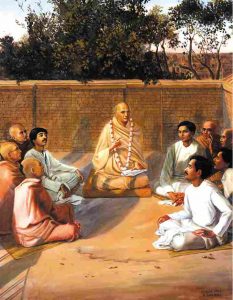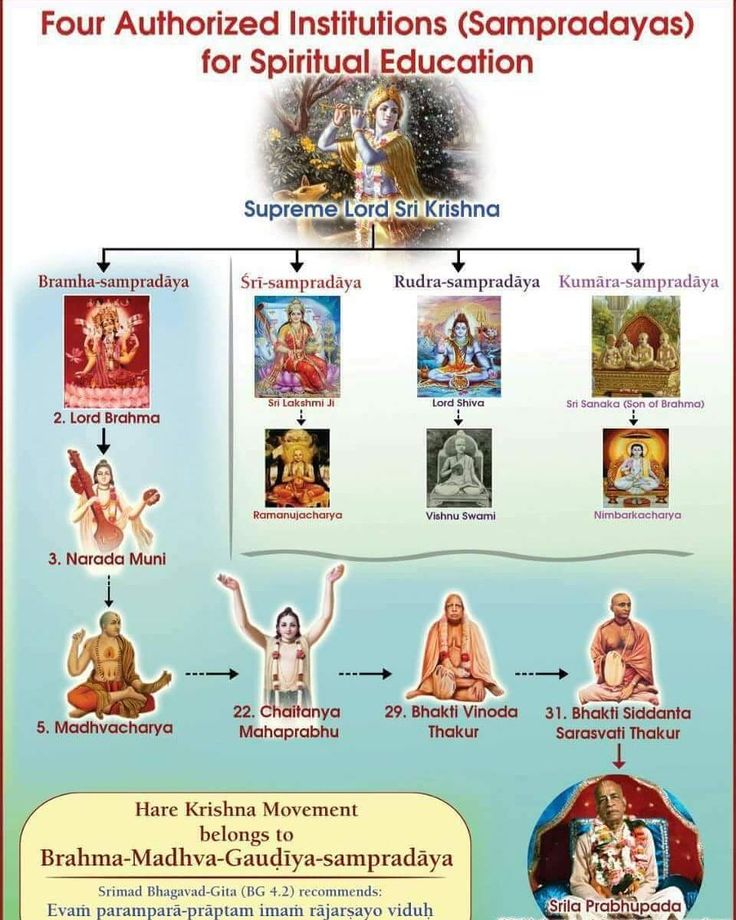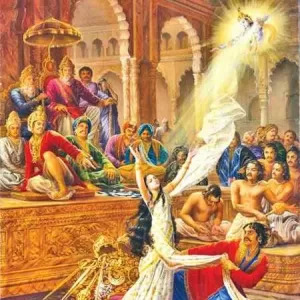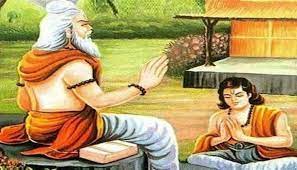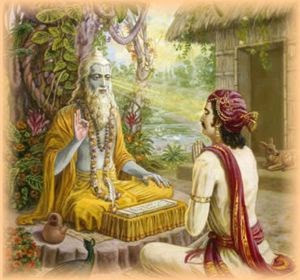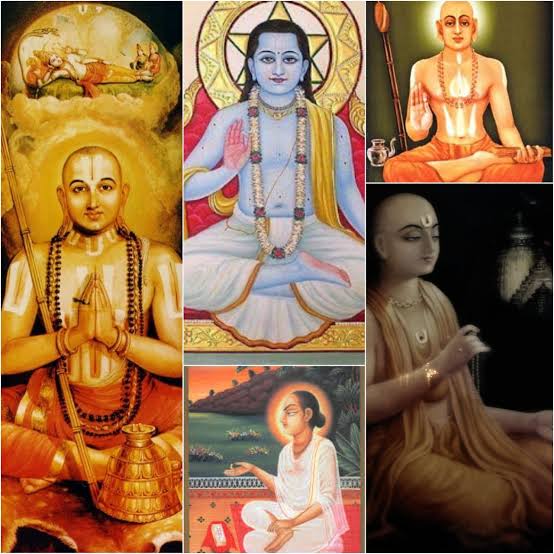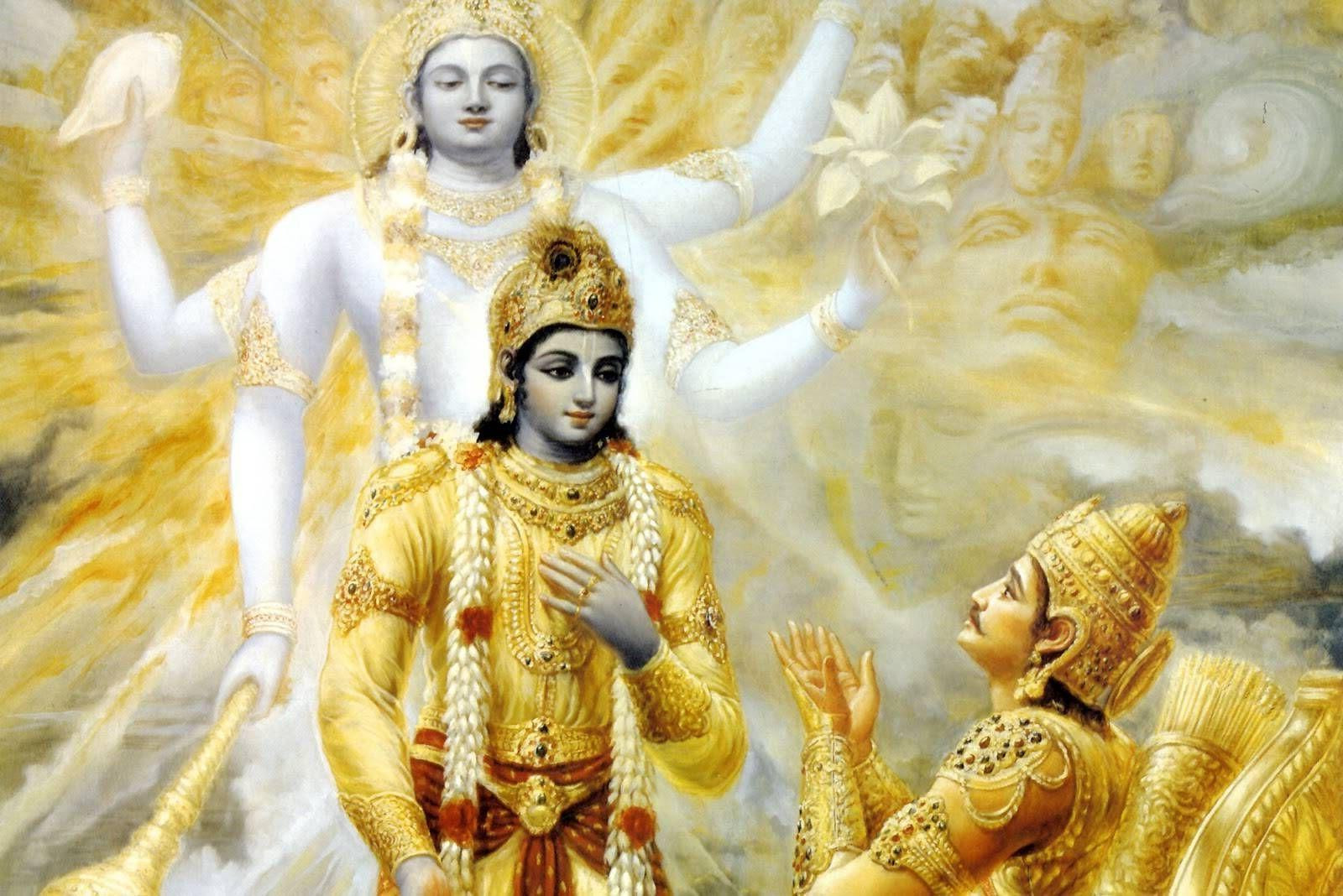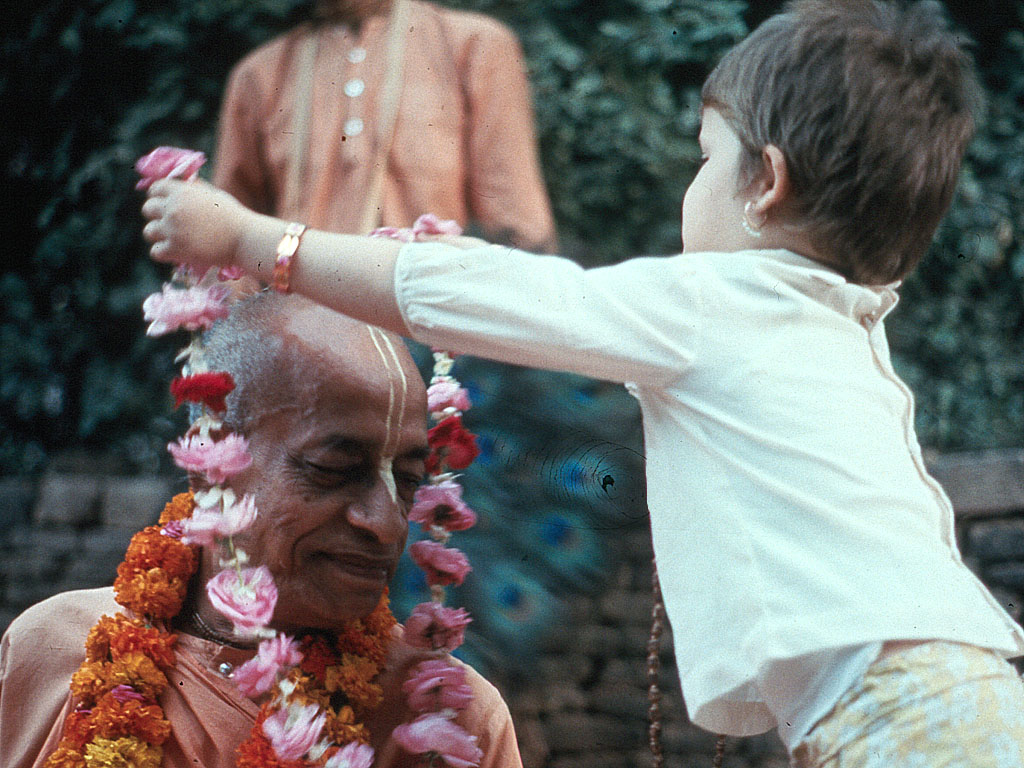Who is a guru and why it is important to have a guru? How should we reach out a guru?
If you want to understand spiritual knowledge, you have to approach a guru. One meaning of the word guru is” weighty”. Therefore the guru is one who is “heavy” with knowledge. And what is that knowledge? That is explained in the Kathopanisad: srotriyam brahmanistham [MU 1.2.12]. Srotriyam means “one who has received knowledge by hearing the Vedas, the sruti”, and Brahma-nistham indicates one who has realized Brahman, or rather Parabrahman, Bhagavan, the Supreme Personality of Godhead. That is the guru’s qualification. One must hear from those who are in the line of preceptorial succession, or disciplic succession. As Lord Krishna says in the Bhagavad-gita, evam parampara-praptam [Bg. 4.2]. If one wants standard transcendental knowledge, not upstart knowledge, one must receive it from the parampara system, the disciplic succession. Another meaning of the word srotriyam mentioned above is “one who has heard from a guru in the disciplic succession”. And the result of this hearing will be Brahma-nistham, “He is firmly fixed in the service of the Supreme Personality of Godhead”. He has no other business. These are the two main qualifications of a bona fide guru. He does not need to be a very learned scholar with an M.A., B.A., or PhD and He simply needs to have heard from the authority in disciplic succession and be fixed in devotional service.
Therefore it is said, saksad-dharitvena samasta-sastraih: the guru is as good as God. When we offer respects to the guru, we are offering respects to God. Because we are trying to be God conscious, it is required that we learn how to offer respects to God through God’s representative. In all the sastras the guru is described to be as good as God, but the guru never says, “I am God.” The disciple’s duty is to offer respect to the guru just as he offers respect to God, but the guru never thinks, “My disciples are offering me the same respect they offer to God; therefore I have become God.” As soon as he thinks like this, he becomes a dog instead of God.
The genuine guru is God’s representative, and he speaks about God and nothing else. The genuine guru is he who has no interest in materialistic life. He is after God, and God only. It doesn’t matter if the guru is Christian, Muhammadan or Hindu If he is simply speaking on behalf of God, he is a guru. Lord Jesus Christ, for instance, He canvassed people, saying, “Just try to love God”. Anyone- it doesn’t matter who-be he Hindu, Muslim, or Christian, is a guru if he convinces people to love God. That is the test. The guru never says, “I am God,” or “I will make you God.” The real guru says, “I am a servant of God, and I will make you a servant of God also.” It doesn’t matter how the guru is dressed. As Caitanya Mahaprabhu said, “Whoever can impart knowledge about Kṛṣṇa is a spiritual master”. A genuine spiritual master simply tries to get people to become devotees of Krishna or God. He has no other business.
Therefore Visvanatha Cakravarti says, kintu prabhor yah priya eva tasya. Because he is the most confidential servitor of God, the guru is offered the same respect that we offer God. God is always God, a guru is always a guru. As a matter of etiquette, God is the worshipable God, and guru is the worshiper God (sevaka-bhagawan). Therefore the guru is addressed as Prabhupada. The word Prabhu means “lord,” and pada means “position.” Thus Prabhupada means “he who has taken the position of the Lord.” This is the same as saksad-dharitvena samasta-sastraih.
The procedure to reach out a guru is given by Lord Krishna in the Bhagavad-gita: tad viddhi pranipatena pariprasnena sevaya [Bg. 4.34]. “One must offer obeisance’s to the guru, inquire from him, and serve him”. If you simply go and ask the spiritual master questions in a challenging spirit but do not accept his instructions and do not render service, then you’re wasting your time. The word used here is pranipatena, “offering obeisances with no reservation”. So reception of transcendental knowledge is based on this pranipata. That is why Krishna says later, sarva-dharman parityajya mam ekam saranam vraja: [Bg. 18.66] “Give up everything else and just surrender unto Me”. Just as we have to surrender to Krishna, we have to surrender to Krishna’s representative, the spiritual master.
Source: A.C. Bhaktivedanta Swami Prabhupada (2014 edition), “The Quest for Enlightenment”, Page 74
A.C. Bhaktivedanta Swami Prabhupada (2014 edition), “The Science of Self-Realization”, Page 67 and 72

